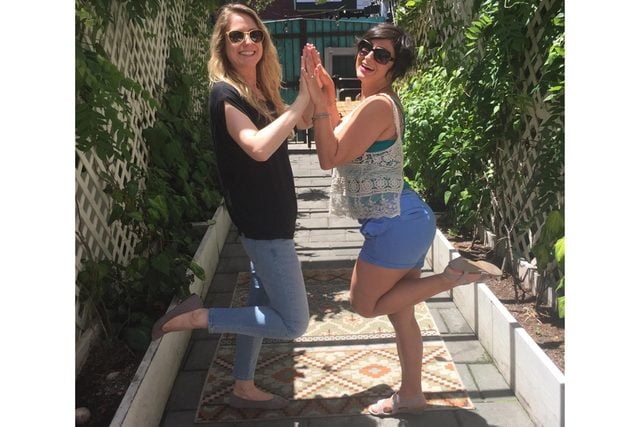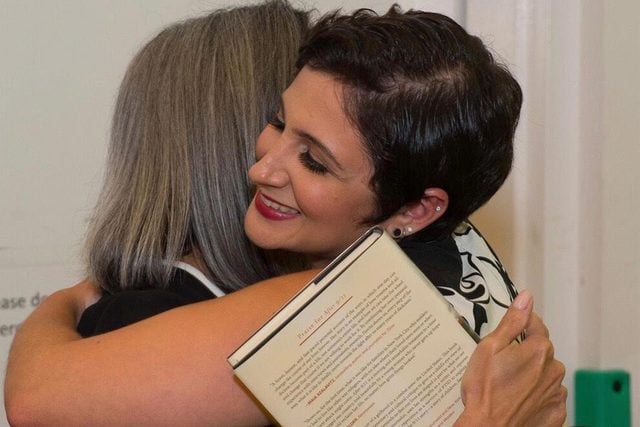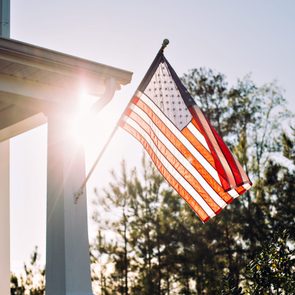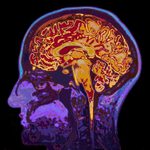13 Powerful Things Surviving a Terrorist Attack Taught Me About Life
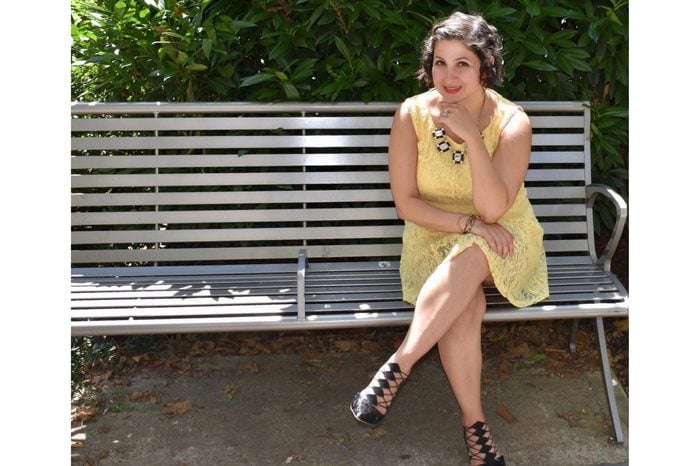
Here's how I learned to see the good in a world that can seem, at times, to be horrifically evil.
Our editors and experts handpick every product we feature. We may earn a commission from your purchases.
On 9/11, I was 12 years old and in middle school three blocks away from the World Trade Center, separated only by a highway and a few sidewalks.
I remember when the bomb squad burst through the doors of the classroom, along with droves of hysterical parents crying and screaming.
Outside the school building, the acrid smell instantly stung our eyes and our nostrils, and the buildings vomited paper and people. The jam-packed crowds were almost impossible to move through, but we had one objective: Get home to the East side, to our neighborhood, which was also just three blocks away from the World Trade Center, on the other side of town.
Soon, we were running from a giant cloud of smoke and debris that we were told not to look at.
“Just cover your faces, don’t look back, and run!” The scene for the next hour, as we tried every possible way to get into our own neighborhood, was the stuff that nightmares are made of. People covered in blood and debris, piercing, blood-curdling screams, loud cries, and low moans. I was covered in debris myself and kept forgetting to pull my shirt over my face to protect it. We spent an hour navigating the horror, trying to get home, normally a 10-minute walk from school, but police blocked every possible route
Once we finally made it back to our apartment, we found that our neighborhood had become a war zone.
The next years of my life were spent coming of age with undiagnosed—then misdiagnosed and incorrectly medicated dozens of times—symptoms of post-traumatic stress disorder that turned my teenage years into a living nightmare.
At 18, when I felt ready to take my own life, I reached out for help one last time, from one last therapist. That email saved my life, and I went on to spend years recovering through various forms of therapy, programs, and support.
Fast forward ten years, and I’ve come to be able to share what I’ve learned and what I know to be true—not just for me, but for many people.
When you go through something traumatic, it tends to color everything else you experience through a filter of darkness, fear. You start to unconsciously see the danger and “badness” in the world. Part of my recovery was learning to see the good with the bad because the truth is the world is pretty horrific at times, but it can also be very beautiful and kind.
It’s pretty easy to see what’s wrong with a situation, but it takes effort to see what’s right. These tools have been invaluable to me in that effort. This powerful story will convince you to stop saying, “Let me know if you need anything” to someone who has just gone through a tragedy.
Knowing that for almost all bad news you see, there is good news that you don’t see.
When the news features a raging flood wreaking havoc on the city, what they don’t feature is the people who rally together as volunteers to help rescue people’s pets and raise money to feed and board them. Communities band together and volunteers fly into action because people really do care about and try to take care of each other.
Remembering that there are always people who are way worse off than you.
This one can be tricky—you don’t want to go down the rabbit hole of feeling even more hopeless, sad, or upset. Just know you are lucky to have basic things like a roof over your head, a friend to talk to, access to clean water. There is so much we take for granted that we can focus on being grateful for. Better yet, let this motivate you to do something to help those people, in any small way possible.
Realizing that you can actually control a lot of what you let into your world.
You don’t have to know everything and be aware of every current event. Bottled water isn’t poisonous. All men are not cheaters. We still have not been hit with nuclear missiles. It’s OK to occasionally turn off the negative news and skip the articles your friend is always sending. When you need to, block out the mental noise: Don’t let your mind be an open door for chaotic thoughts that other people try to shove in there.
Knowing that when someone is hurtful, nasty, or rude, they are probably suffering.
People who are generally happy don’t usually say or do mean things. When you get a nasty email from a coworker or someone bumps into you and curses at you in the supermarket, know that they are currently struggling with something (or many things). They may be getting pressure from someone else and dealing with a personal issue. Practice compassion, and if you’re feeling really generous, wish for them to have everything they want in life that you would want for yourself. Here are the questions young people ask Helaina the most about surviving 9/11.
Staying in the present moment. Everything is usually OK there.
If you don’t feel “OK,” chances are you’re thinking about some past event and stewing in it, or you’re fearful of some possible future event that might happen. Chances are, right now, you are at the baseline definition of OK.
Believing in something that is bigger than you, but that doesn’t control negative events.
You don’t have to be religious to have faith in something. It can be the ocean. A crystal. Morning sun on your porch. Whatever this concept of something greater is, however, it does not allow bad things to happen or cause bad things to happen. Instead, imagine it as something nurturing that is always there giving you personal strength to endure life’s challenges.
Recognizing that bad things in the world don’t have to affect the good things you bring into it.
Focus on bringing as much good as you can into your own universe, your everyday life, and the people who enter or pass through it. You can’t control millions of voters or bodies of government or sick criminals, but you can control whether you wait an extra beat to hold a door open, bring your dog over to visit an elderly neighbor you’ve caught admiring them, or writing a sweet message to a friend just because.
Knowing that most of your fears are staring right back at you.
On a personal level, a lot of what we worry others will think or do starts within. Do we write stories about people or comment on what they look like, say, who they date, what they wear? Spoiler alert: We don’t all think the same way, but once you start controlling, and stopping, any negative thought chains in your own mind, it’s amazing how quickly those worries about what people think of you start to dissolve over time as well.
 Learning who you can actually trust when the world feels untrustworthy.
Learning who you can actually trust when the world feels untrustworthy.
When the world feels out of control or you’ve been betrayed by someone, which we all have at one point or another, you need points of reference and awareness to stay strong. Don’t over share with the first person you meet; build a friendship slowly over time and test out small secrets you wouldn’t mind getting out. See how a person talks about other people—that’ll give you a good idea of where you’ll land.
Always having hope.
When it feels like the world is going to the dogs and you have no hope, surprise, you actually do. I saw the hilarious and insightful comedian Louise C.K. put it bluntly when he performed at Madison Square Garden. And while he takes this subject a little lightly, he’s right: We have a choice whether to live this day. “Every day that we wake up and choose to live this day again is incredibly brave. It’s always in your control.” If you are living, you have hope. It may feel like just a glimmer of a sparkly nugget buried under a pile of mud and poop, and maybe you can’t see it at all, but it’s there.
Accepting that nothing can ever stay up or down.
If you’re down right now, that means at some point—maybe not on your timeline, maybe not exactly the way you want it—things will get better.
Learning that there is power in powerlessness.
There are so many things that are out of our control, yet we feel we have to make things happen, move things along to feel OK. Oftentimes, when we push, it makes things worse. Pick your battles, and know that sometimes shrugging and having patience or accepting something that isn’t very likely to change is actually a huge relief, and a lot less stressful than the other option, which will likely get you more frustrated.
Feelings of impending disaster can be a positive.
I had to learn to turn fear into positive energy. We don’t know always if a loved one will make it home. We don’t know if we’ll make it home. We don’t know when the chance will come to finally say what we need to say to someone, whether it’s “I love you” or “I’m sorry” or “I think I’m the one for the job.” Instead of dwelling in the terror of what the end could and might look like for you and everyone you care about, use it as motivation to live your life to the fullest.
I hope this list helps you navigate the larger world and your own world just a bit more smoothly and peacefully than you did before. Next, read the story of the woman who was personally blamed for the terrorist attacks on 9/11.
Helaina Hovitz is the author of After 9/11.
